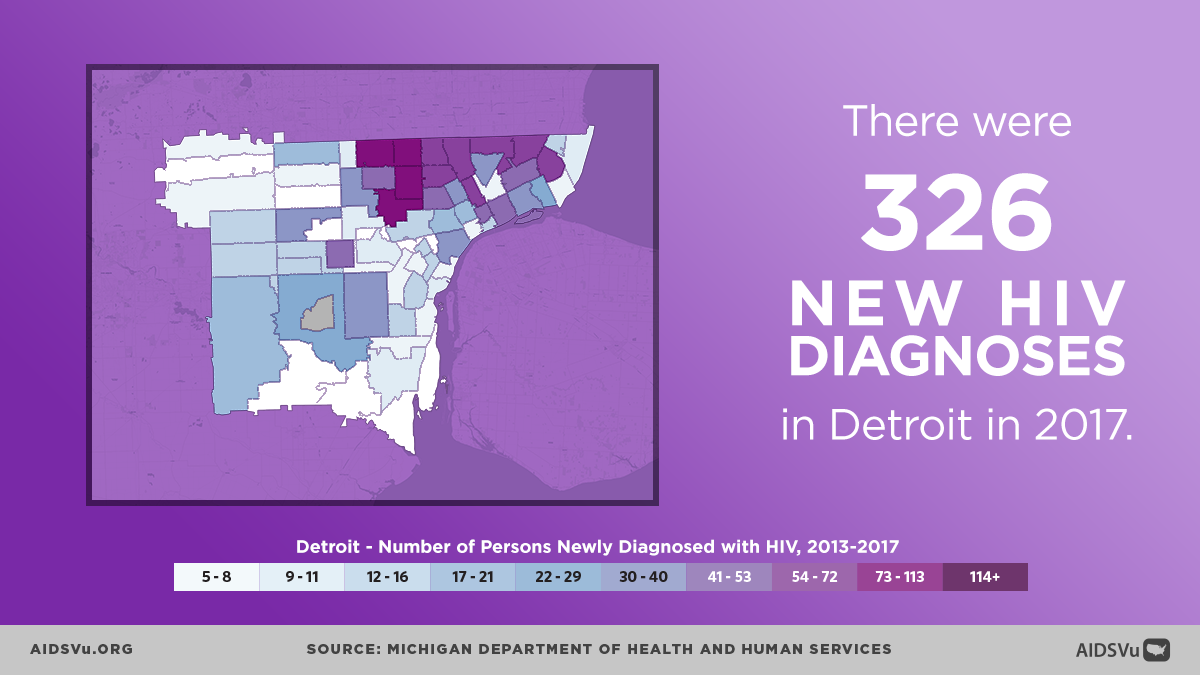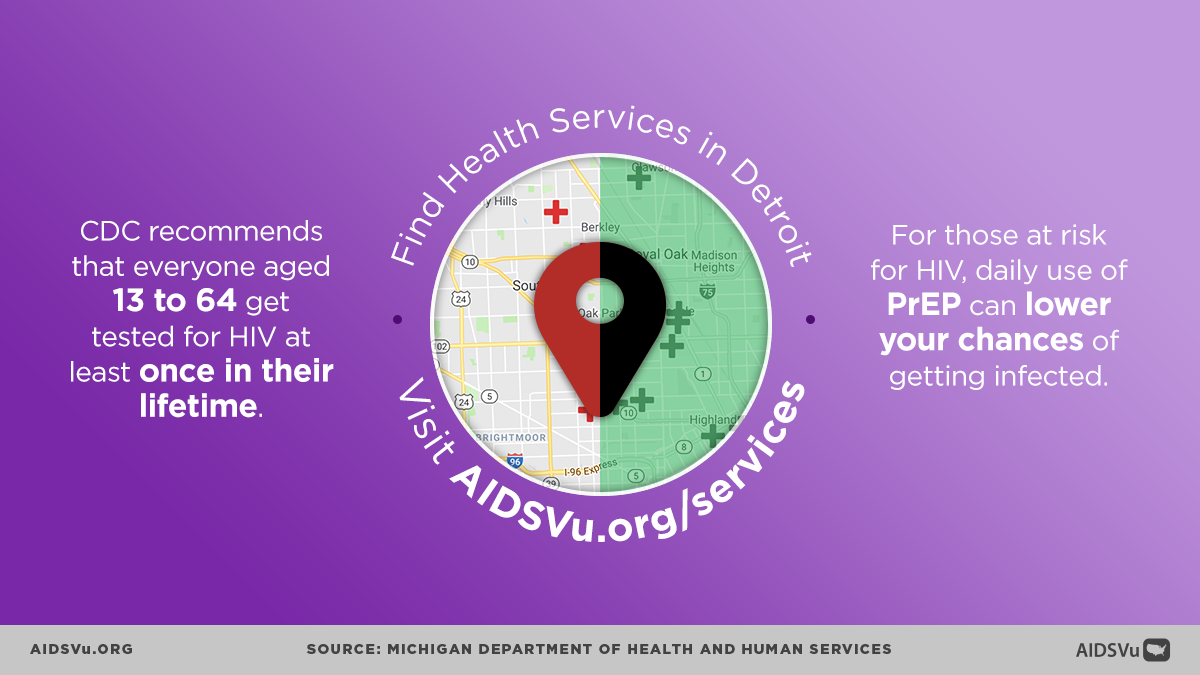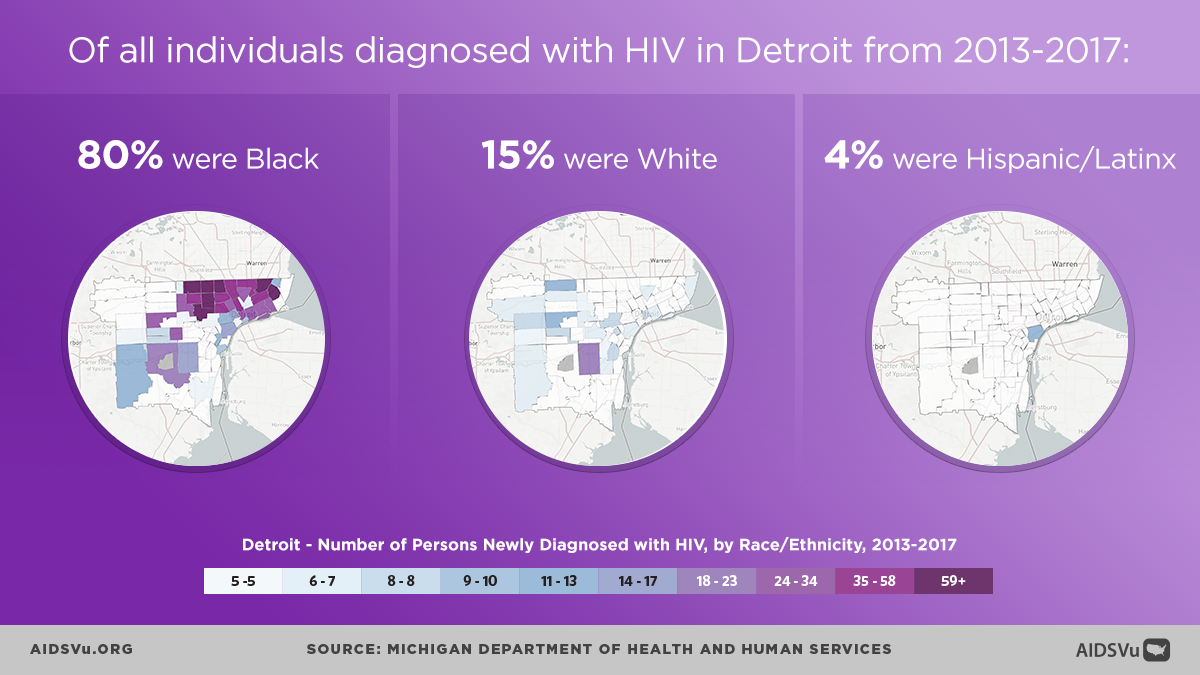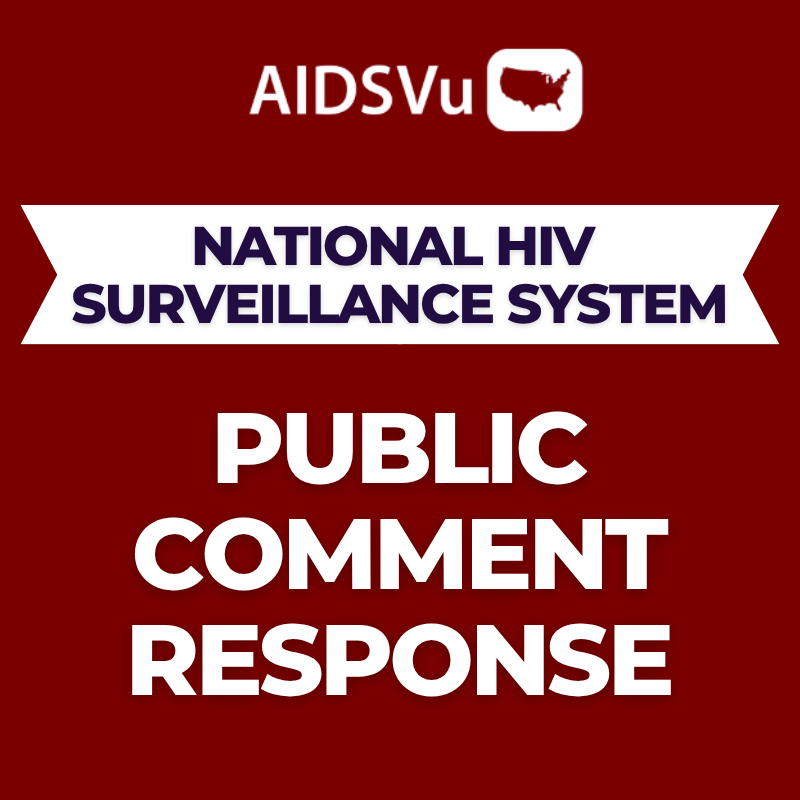Today, AIDSVu released 2017 ZIP Code-level data and interactive maps for nearly 40 cities across the United States, including Detroit. Detroit is a key example of how HIV disproportionately impacts Black Americans. Black men and women are currently experiencing the highest rates of HIV in Detroit, representing 78% of all individuals living with HIV in 2017. In addition, the rate of Black females living with an HIV diagnosis is 12.1 times that of White females.
Both the Michigan Integrated HIV Prevention and Care Plan, including the Statewide Statement of Need, CY 2017-2021 and the City of Detroit Health Department HIV program are Detroit’s contributions to a series of state- and city-wide partnerships. The two core programs helping people living with HIV in Southeastern Michigan are the Ryan White Program in Metro Detroit and Housing Opportunities for Persons with AIDS (HOPWA). There is also a service in the Metro Detroit area for HIV-positive persons called Link-Up Detroit, to help connect those in need to non-medical services and/or assistance in enrolling in medical care. The plan and the work of these groups are a comprehensive effort to eliminate HIV/AIDS in Detroit and across the entire state of Michigan.
Another set of important factors that determine HIV risk are social determinants of health such as poverty, health insurance status, high school education, income inequality, and median household income. In Detroit, when you compare these maps there are strong correlations between these social determinants of health and HIV prevalence and new diagnoses.
Although each community has unique challenges to tackle through education, testing, and treatment, new HIV infections can be eliminated throughout the United States. If you are at risk for HIV, find testing services in Detroit today and know your status.
If you are living in the Detroit Metro Area:
- EDUCATE FAMILY AND FRIENDS: View our local statistics to see how HIV impacts your community.
- LEARN MORE: Check out the Detroit Health Department’s resources to learn more about their plan to end HIV in the state.
- GET TESTED: Visit AIDSVu.org/testing to find a testing site near you.
- FIND PrEP PROVIDERS: Use AIDSVu’s PrEP locator to find a PrEP provider near you.








